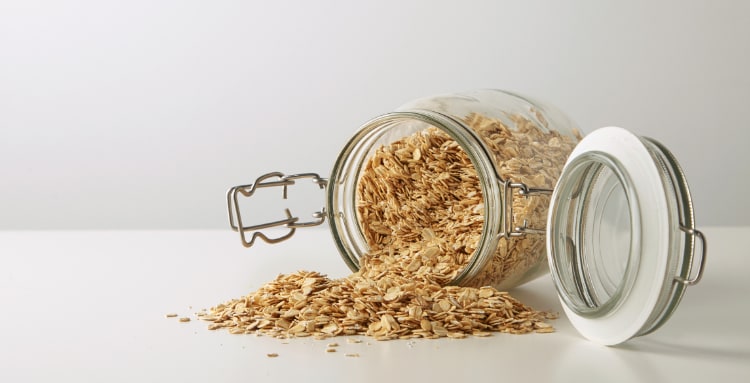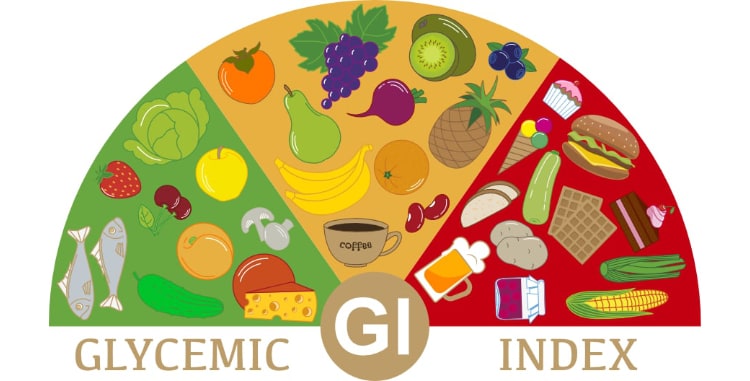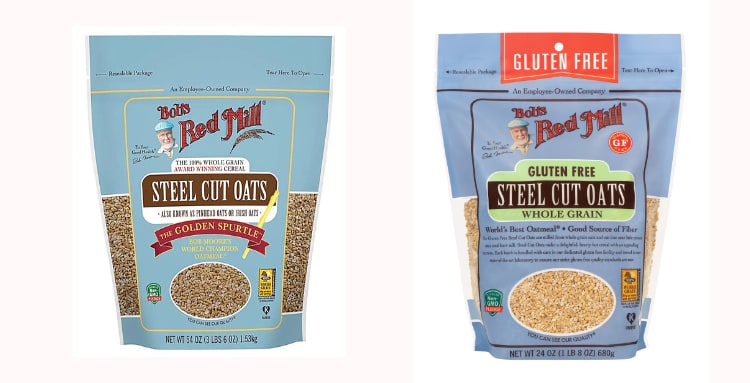
Oatmeal is regarded as one of the healthiest things to eat for breakfast. But Chef V doesn’t have much of an appetite for it. Learn why oatmeal might not be as healthy as you think…
What could be more healthy to eat in the morning than a bowl of oatmeal topped with chia seeds, sliced almonds, a handful of blueberries, and maybe a scoop of nut butter, all drizzled with honey?
Sounds super satisfying, right?
For many people having a bowl of oatmeal for breakfast is indeed the perfect meal for sustained energy and to prevent cravings until lunch time.
If you’re an oatmeal lover I hate to crash your breakfast party but here’s some food for thought…
I have some reasons why you may want to think twice about eating it, or at least eating it every day.

Top Reason Oatmeal is Overrated: Glyphosate
The most heavily sprayed herbicide in the world is a chemical compound called glyphosate, which is lurking in your oatmeal.
I wrote about glyphosate in detail here. In case you missed it or don’t remember what it was about, let me catch you up to speed…
In 2015, glyphosate was declared “probably carcinogenic (cancer-causing) to humans” by the main cancer research institute of the World Health Organization.
Glyphosate is a toxic weed-killer and pesticide and the active ingredient in Roundup. Roundup has been the top-selling herbicide brand in the U.S. for many years.
Heavily sprayed on crops like soy, corn and oats, glyphosate has been blamed in over 125,000 Roundup lawsuits for causing cancer.
It’s sprayed on oats in order to dry the crop faster so it can be more quickly processed into things like oatmeal and oatmeal cookies.
Now I don’t want you to freak out if you’ve been eating oatmeal every day for years. The people who have filed Roundup lawsuits have been mostly recreational gardeners that were directly exposed to glyphosate either through the skin or by inhaling the particles.
But in order to take control of your health, it’s a good idea to limit your intake of foods that contain glyphosate residue.
According to tests conducted by the Environmental Working Group, out of 45 oat-based products, only two did not contain glyphosate.
More troubling, the 43 products that did have it contained levels several times higher than what the EWG considers safe.
So think about that next time you have a bite of conventional oatmeal. And definitely consider these facts if you have kids who eat oatmeal or cereal bars. As the EWG declared, “harmful pesticides don’t belong in kids’ breakfast foods!”

Oatmeal Overrated: High-Starch Carbs
If you want to get leaner, your biggest enemy is high-starch carbs. What are high-starch carbs? Think mashed potatoes, white bread, wheat bread, anything with white flour and the type of oatmeal most people consume.
Most people are in a rush and don’t have the luxury of taking an hour to make old-fashioned steel-cut oats. So packets of instant oats it is.
Microwaveable oatmeal has a high glycemic load. This means that instant oats can significantly raise your blood glucose level after eating it.
And most people eat way too many starchy carbs to begin with. It’s one thing if you’re limiting your intake of carbs during the day to low-starch veggies and a moderate amount of fruit.
But if you’re also eating rice, pasta and bread throughout the day, eating oatmeal is like pouring fuel on the fire. Or more accurately, adding more unburned energy (fat) to the body.
Yeah, but isn’t oatmeal high in fiber? Yes, it is. But that doesn’t mean that your pancreas won’t release insulin in order to control the blood sugar response.
While getting enough fiber in the diet is critical for healthy elimination, you’re better off getting your fiber from produce, quinoa and ancient grains like teff.

Antinutrients in Oatmeal
Over 60 million Americans are diagnosed with a digestive disorder, according to the GI Alliance. That’s a lot of bloated bellies and other unpleasant symptoms of gastrointestinal disorders.
Oats are a type of grain. And grains contain compounds called “antinutrients” that may prevent absorption of vitamins and minerals. Therefore, some people who eat oatmeal may not tolerate it well.
Most grains, before they are processed into food, contain two compounds that are considered anti-nutrients.
The first one is phytic acid, which binds to minerals in the oats, preventing us from absorbing them very well.
So even though you may see on the nutrition label on a box of oatmeal that there are many vitamins and minerals, keep in mind your body may not be up taking them very efficiently.
Grains such as oats also have something called lectins, which prevent plants from being devoured by parasites and insects. Gluten is technically a type of lectin. But even if you’re not allergic to gluten, you can still experience bloating and other digestive upsets from eating foods with lectin.

What’s In Your Oatmeal?
Besides having to worry about glyphosate, antinutrients and the insulin response to oatmeal, here’s something else to consider.
Oatmeal by itself tastes so bland that the only solution to making it taste appealing, for most people, is usually topping it with something super sweet like sugar or honey.
Unlike high-starch foods, which convert into sugar, sweet toppings can instantly drive up our blood sugar level.
And don’t get me started about all that sugar in instant oatmeal packets.
Can’t Quit Oatmeal? Follow This Advice
If you’re trying to get leaner, skip breakfast entirely. Instead, have a tall glass of water with some fresh-squeezed lemon.
Then wait about half an hour and have 8 to 16 ounces of my Chef V Organic Green Drink. If you’re still hungry later in the morning, have a plant-based protein shake. Do this for a couple weeks and you’ll notice great results!
But if you absolutely love oatmeal, make sure to purchase a non-GMO, organic gluten-free variety. Oats do not naturally contain gluten. But many commercial brands of oatmeal are cross-contaminated with gluten.
And the more old-fashioned the oats are, like steel-cut or porridge, the longer it will take the starches to convert into sugar. And to reduce the antinutrients if your tummy is sensitive to them, try sprouted oats.
While I may not be on the oatmeal breakfast bandwagon, I do love homemade oat milk. Naturally, I use certified organic, gluten-free oats. Here’s how I make it.
Conclusion
Oatmeal is hyped for lowering blood pressure, being rich in fiber and being good for cholesterol. But that’s not the whole story.
Here’s to your health! – Chef V
